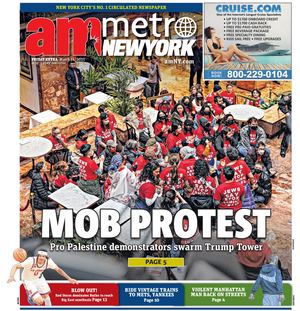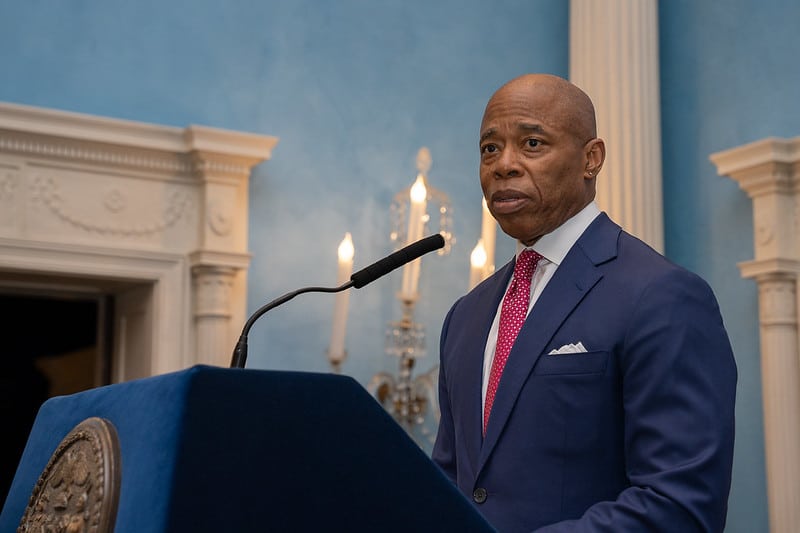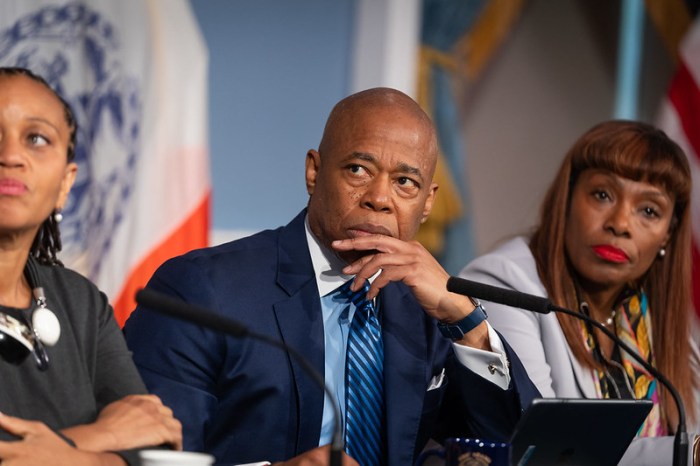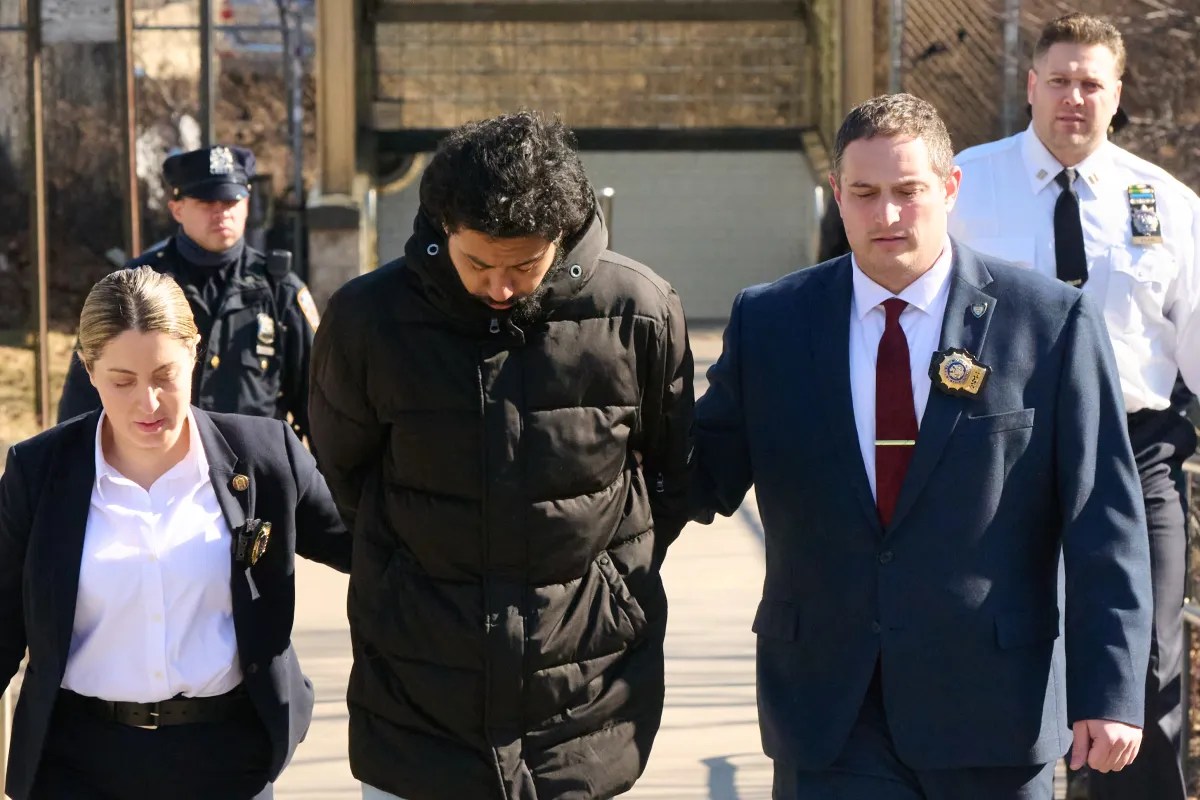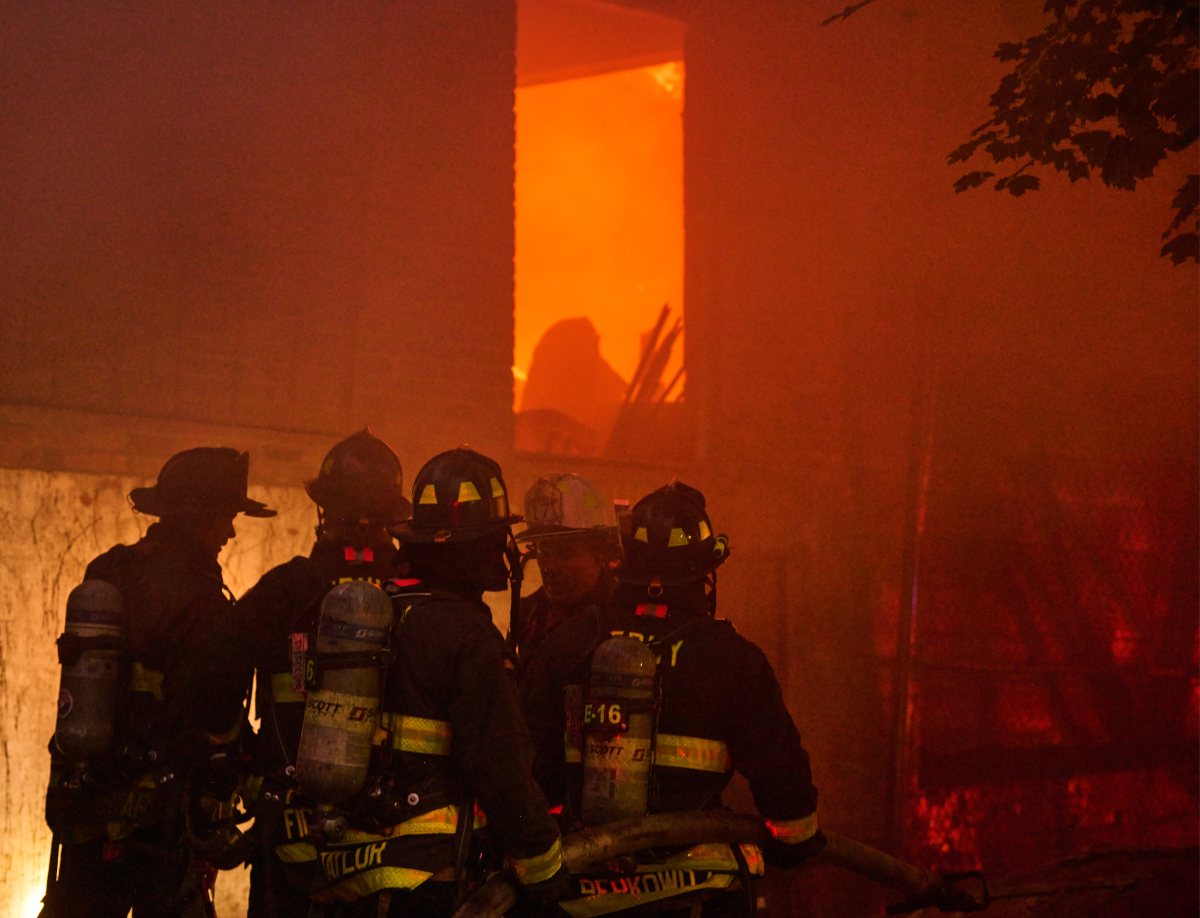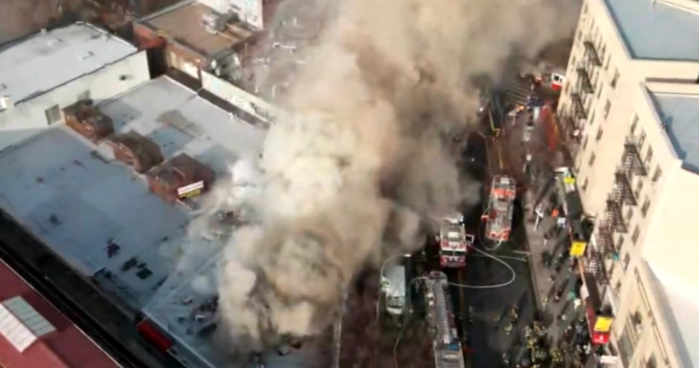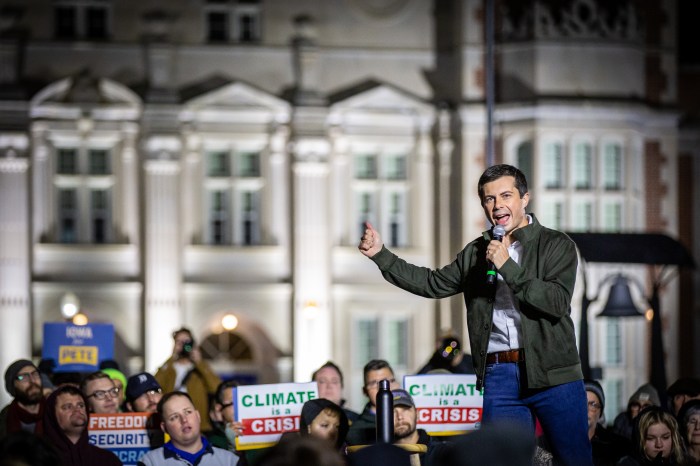Mayor Eric Adams’ unveiled the first round of long-anticipated across-the-board budget cuts on Thursday, with the “painful” spending reductions impacting NYPD recruitment, Sanitation Department (DSNY) initiatives, migrant services and Sunday hours at the city’s public libraries.
The cuts came in the mayor’s annual November Financial Plan, a required update to the city budget for the current fiscal year that passed the City Council in June. The 5% cuts to every city agency will together yield $3.7 billion in savings over the current fiscal year and the next, according to the mayor’s office.
Adams, in a statement, said the trims — which he called “extremely personally painful” earlier this week — had “minimal” impact on city services and were made without raising taxes. But he warned that more severe reductions could be on the horizon without significant federal migrant crisis aid.
“For months, we have warned New Yorkers about the challenging fiscal situation our city faces,” Adams said. “To balance the budget as the law requires, every city agency dug into their own budget to find savings, with minimal disruption to services. And while we pulled it off this time, make no mistake: Migrant costs are going up, tax revenue growth is slowing, and COVID stimulus funding is drying up. No city should be left to handle a national humanitarian crisis largely on its own, and without the significant and timely support we need from Washington, D.C., today’s budget will be only the beginning.”
Additionally, officials with the mayor’s Office of Management and Budget said they made the cuts without laying off any municipal workers, during a virtual briefing with reporters Thursday afternoon.
Why cut the budget?
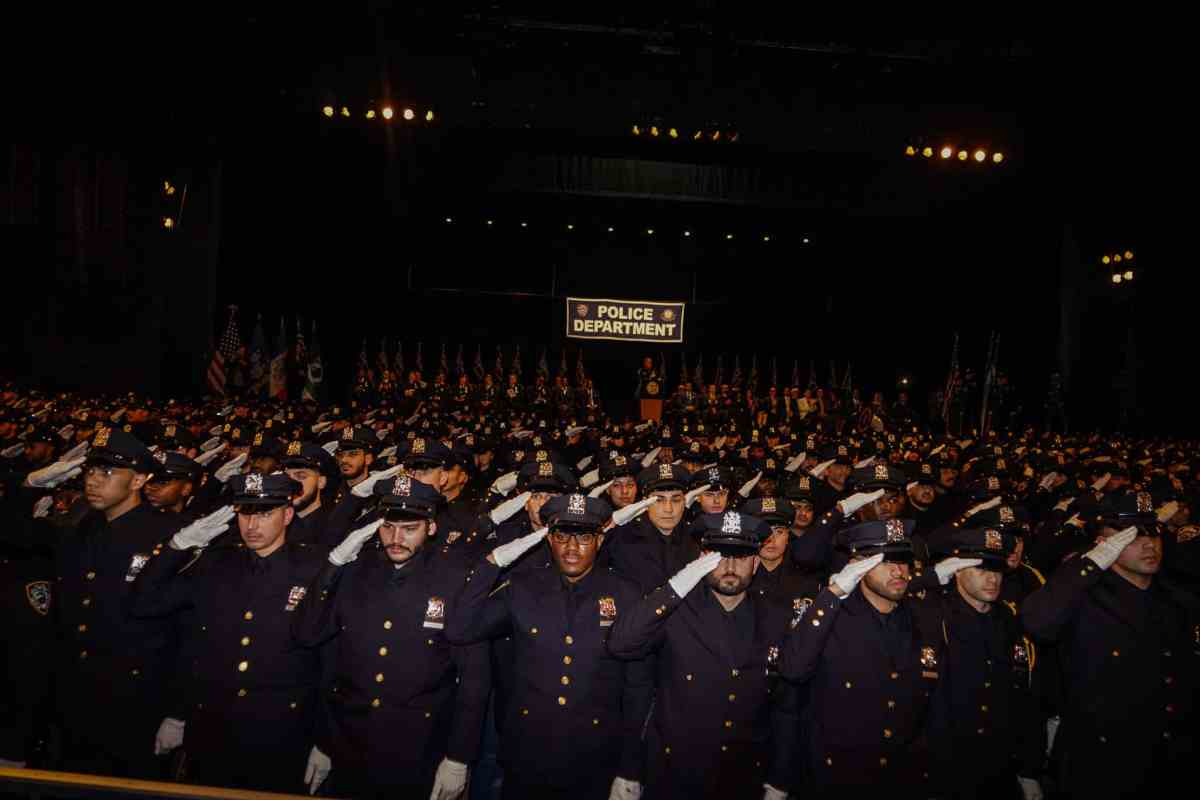
Adams ordered the cuts in the name of balancing the city’s fiscal health as the cost of providing for tens of thousands of migrants continues to mount and significant financial support from Washington and Albany seems unlikely to be coming. City Hall estimates the influx will cost taxpayers as much as $12 billion by the summer of 2025.
The city is now facing a budget shortfall of $7.1 billion in Fiscal Year 2025 due to the ballooning price tag of the migrant crisis, City Hall says.
The administration also cited the drying up of COVID-19 related federal aid, the significant expense of numerous recently settled municipal labor contracts and slowing tax revenue growth as reasons for the broad spending trims.
Even with the cuts, the fiscal plan came in at $110.5 billion, a $3.4 billion increase from the $107.2 billion Fiscal Year 2024 budget crafted by the mayor and the council and approved by city lawmakers on June 30. That increase was due to higher than expected revenue growth and grant funding, according to City Hall.
The lead up to the passage of that spending plan was dominated by the City Council working to restore funds from three previous rounds of cuts the mayor made. One of those restored cuts was to the city’s public libraries systems, which Adams has now cut to the point that their leaders said Thursday that they must cancel Sunday service at most branches.
“I think it’s a sad day because there are a lot of programs that we fought really hard to ensure were held harmless and it looks like we’re gonna have to revisit some of those conversations now,” said Deputy City Council Speaker Diana Ayala (D-Manhattan/Bronx).
Services impacted
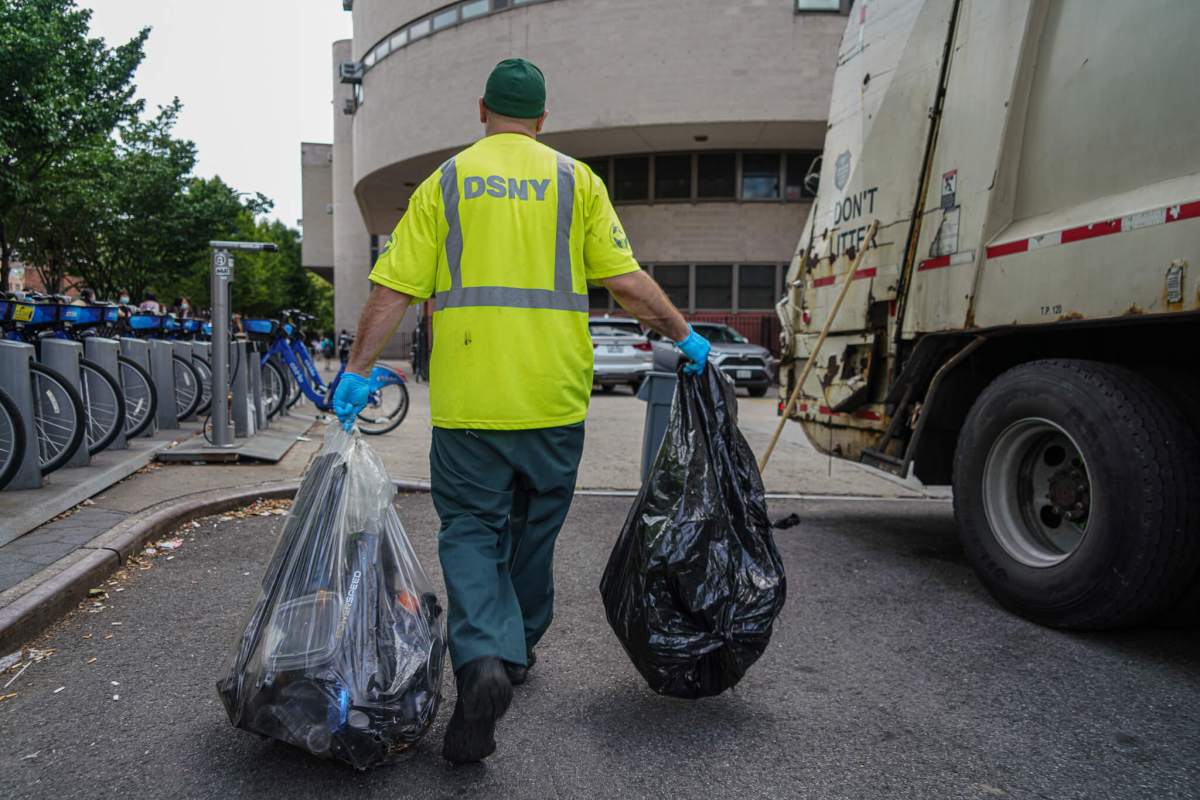
With cuts across every city agency, a wide array of services and programs will be impacted. The plan has already drawn widespread backlash from city lawmakers, unions and advocates.
Perhaps most notable effect of the reductions is a hiring freeze at the NYPD, where the next five police academy classes have been postponed, according to OMB officials. The move will leave the NYPD’s ranks below about 29,000 by the end of FY25 — the lowest it has been since the mid-1990s — and will save the city $1.1 billion over the next four fiscal years.
The hiring freeze comes as retirements at the department reached a record high last year, according to the Police Benevolent Association (PBA).
“This is truly a disaster for every New Yorker who cares about safe streets,” PBA President Patrick Hendry said, in a statement. “Cops are already stretched to our breaking point, and these cuts will return us to staffing levels we haven’t seen since the crime epidemic of the ‘80s and ‘90s. We cannot go back there.”
The cuts will also hit the Department of Sanitation, delaying the rollout of the mayor’s mandatory curbside composting program to Staten Island and the Bronx from next April to next October, city budget officials said. Additionally, the department will be reducing the number of litter baskets in the outer-boroughs and residential areas, with the level of service staying the same for the remaining baskets.
Ayala, who represents East Harlem and the South Bronx, said she’s concerned about how a reduction in litter basket service will affect her district.
“In some communities it doesn’t matter, but in communities like mine, it’s a really big deal,” Ayala told amNewYork Metro. “We have higher density, we have more garbage on the streets that leads to a host of other issues.”
The city is also looking to reduce the host of services it provides migrants to bring down the cost of the crisis, OMB officials said. In order to accomplish that, the city will conduct a “thorough review” of migrant services and staffing levels to see where reductions can be made.
In a joint statement, Council Speaker Adrienne Adams and Finance Chair Justin Brannan suggested the mayor could save on migrant expenses by shifting contracts for their services from private firms to nonprofits.
“The Administration’s response in providing services for asylum seekers has relied far too much on expensive emergency contracts with for-profit companies that cost the City billions of dollars,” they said. “We urge the Administration to shift as many contracts as possible to non-profit organizations with more expertise and commitment to the long-term public interest of the city.”
Read more: Bronx Fentanyl Bust Leads to 11 Arrests, $4M Seized
